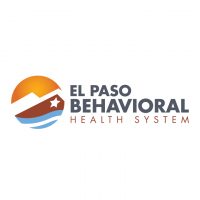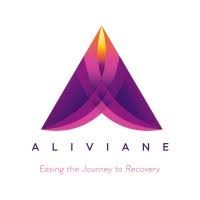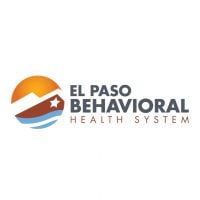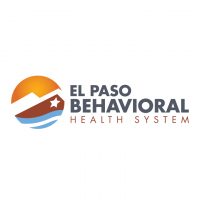New Beginnings - Outpatient
Drug Rehab Center in El Paso, Texas
New Beginnings - Outpatient is an addiction treatment facility located in El Paso, TX that provides a comprehensive approach to addiction recovery including medical detoxification, individual and group counseling, educational support, and relapse prevention.
Multiple patients have reported New Beginnings - Outpatient as permanently closed.
Research other rehabs in El Paso, Texas, or get help finding an open facility.
About New Beginnings - Outpatient in Texas
New Beginnings - Outpatient is a drug treatment facility located in El Paso, Texas. Their primary focus is to provide support and assistance to individuals seeking help for alcoholism, opioid addiction, substance abuse, and drug addiction. As an outpatient facility, New Beginnings offers a level of care that allows individuals to attend treatment sessions without requiring them to reside at the facility. This is ideal for those who have responsibilities or obligations that prevent them from participating in a residential program. With a commitment to helping people overcome addiction, New Beginnings - Outpatient aims to provide a safe and supportive environment for individuals taking their first steps towards sobriety.
New Beginnings - Outpatient offers a range of services and treatment methods designed to address addiction and substance abuse. Their aftercare support program ensures that individuals have access to ongoing support following their treatment, helping them maintain their sobriety and navigate the challenges of life after rehab. The facility also provides drug rehab services, allowing individuals to receive the necessary treatment and counseling to overcome their addiction. The treatment methods employed at New Beginnings include evidence-based therapies and approaches that have been proven effective in helping individuals recover from addiction. The combination of personalized treatment plans, individual and group therapy sessions, and educational resources allows individuals to explore the underlying causes of their addiction and develop essential skills for long-term recovery.
Genders
Ages
Modality
Additional
Conditions and Issues Treated
Substance abuse is a severe problem that affects many people in El Paso, TX. It is characterized by the excessive and inappropriate use of drugs, including alcohol, medications, and illicit drugs. Substance abuse can lead to physical or psychological dependence and affect social life and relationships. Treatment options include medications, counseling sessions, behavioral therapy, and group therapy. If you are suffering from substance abuse, contact for the latest treatments available.
Opioid addiction is when someone becomes addicted to opioids. This can happen quickly due to any opioid use. Opioid withdrawal can be uncomfortable and lead the user to continue using even if they want to quit. It’s best to receive inpatient treatment for detoxification.
Even if a person doesn’t need inpatient treatment, it’s recommended to start rehabilitation or at least some kind of outpatient treatment. This is because the withdrawal symptoms from opioids can be uncomfortable and unpleasant, to the point that a person could end up using again or worse.
Detoxification should be done to break the physical addiction of opioids. This can be done with opioid replacement therapy, medication-assisted therapy, or a more traditional detoxification program. Intensive outpatient treatment is a form of addiction care that allows patients to continue living at home while undergoing treatment. This type of care is appropriate for patients who have been treated in residential treatment programs. Intensive outpatient programs include regular visits to the facility providing therapy, and patients gradually return to their routine life. IOP benefits most when patients have a supportive family member or friend to help them recover.
The first step to getting into an intensive outpatient program is to attend a detoxification facility. Detoxification facilities are designed to remove substances from the body safely. The patient will attend sessions designed to help them understand their addiction and its impact on their lives. While in an intensive outpatient program, therapy sessions are scheduled three to five times per week, with the patient attending no more than two sessions in one day.
Levels of Care Offered
This center offers a variety of custom treatment tailored to individual recovery. Currently available are Aftercare Support, Drug Rehab, Outpatient, with additional therapies available as listed below.
Outpatient treatment consists of counseling and therapy sessions. The outpatient treatment process begins with the addict’s initial detox period, lasting about ten days. Outpatient treatment is used for those who are at moderate risk for “slipping back” into the addiction. It is also used for those who are not currently experiencing any side effects from withdrawal, can handle social pressure, have a stable living environment, and have a good support system.
Aftercare support is often overlooked in the treatment of drug and alcohol addiction. However, it’s an essential part and should be considered when planning a course of rehab.
Aftercare is a term that’s used to refer to any sort of continuing care offered for a drug addict who has voluntarily entered a rehabilitation program. This type of care can be provided in several settings, including outpatient therapy sessions after the addict has completed an inpatient program. There are also 12-step support groups, such as Alcoholics Anonymous, which can provide additional help for addicts trying to stay sober.
Aftercare is vital because addicts often face many challenges as they attempt to recover from drug addiction or alcoholism. Because of the powerful nature of these addictions, those who struggle with a drug or alcohol problem will likely have to face the craving for their substance of choice for the rest of their lives. Recovering can be a lonely and frustrating endeavor, especially without the support of others who are going through similar situations.
Therapies & Programs
Individual Therapy is a crucial component of addiction recovery. Therapists work with patients to identify the root of their addiction and figure out how to better handle the issues that led to them using drugs. Individual Therapy is one on one sessions where people meet with their therapist. Individual therapy provides a safe space for people to open up and discuss personal and sensitive topics which they may not feel comfortable discussing in a group setting.
In this type of therapy, therapists can develop specific solutions for each patient, which helps speed up their recovery process. In addiction recovery, therapy is a crucial part. It allows patients to go deep into their core issues and discover how those problems can be better handled now. Therapy can be performed in individual sessions as well as group settings. In individual therapy for addiction, the patient meets with the therapist one-on-one to focus on the underlying issues of addiction and come up with solutions to prevent future abuse.
Addiction can take a heavy toll on relationships, damage the trust and intimacy that was once there. Couples therapy at New Beginnings - Outpatient helps to rebuild the trust and intimacy that has been damaged. An intimate relationship with a drug addict is not healthy for children or anyone in the family. Therapist help to rebalance family roles and create a healthier environment after rehab in El Paso, TX.
Family therapy is a crucial part of drug treatment and getting sober. It is one of the most effective ways to help addicts stay on the path to long-term sobriety. One of the most important parts of family therapy is the relapse prevention plan. During treatment, therapists and doctors will often sit down with the addict and their family to develop a plan if the addict ever feels like they want to use again. This plan should involve steps the addict and family can take together to prevent them from relapsing in the future.
An addict’s family can play a vital part in helping them to avoid relapse because they can spot the warning signs and help them get back on track before it becomes too much of a problem. Family therapy is one of the most effective ways to help addicts stay on the path to long-term sobriety.
Group Therapy is employed by drug treatment centers like New Beginnings - Outpatient to provide the recovering addict with a platform to talk about their feelings and experiences. It also provides for an opportunity to learn from other addicts who have successfully overcome their addiction. It is recommended that all group members be recovering addicts for this type of therapy to work.
Additional Details
Specifics, location, and helpful extra information.
El Paso, Texas 79905 Phone Number(915) 771-0990 Meta DetailsUpdated November 25, 2023
Staff Verified
New Beginnings - Outpatient Patient Reviews
There are no reviews yet. Be the first one to write one.
El Paso, Texas Addiction Information
Texas is one of the primary hubs for drug smuggling into the country. The border between Texas and Mexico is more than 1,000 miles long. More than 10 million residents use alcohol every year and more than 25% of those are minors. Alcohol and drug use has become so common in Texas that almost 15% of all deaths can be attributed to these substances.
8.9% of El Paso residents aged 12 or older reported past-year illicit drug use in 2016. The majority of people who abuse drugs in El Paso are between the ages of 18 and 25. 24% of alcohol-related crashes involved drivers who were under the legal drinking age of 21. The most commonly abused drugs are methamphetamine, heroin, cocaine, and marijuana.
Treatment in Nearby Cities
- La Marque, TX (701.0 mi.)
- Big Spring, TX (291.1 mi.)
- Grapevine, TX (551.0 mi.)
- Eastland, TX (447.0 mi.)
- Wylie, TX (582.6 mi.)
Centers near New Beginnings - Outpatient
The facility name, logo and brand are the property and registered trademarks of New Beginnings - Outpatient, and are being used for identification and informational purposes only. Use of these names, logos and brands shall not imply endorsement. RehabNow.org is not affiliated with or sponsored by New Beginnings - Outpatient.







